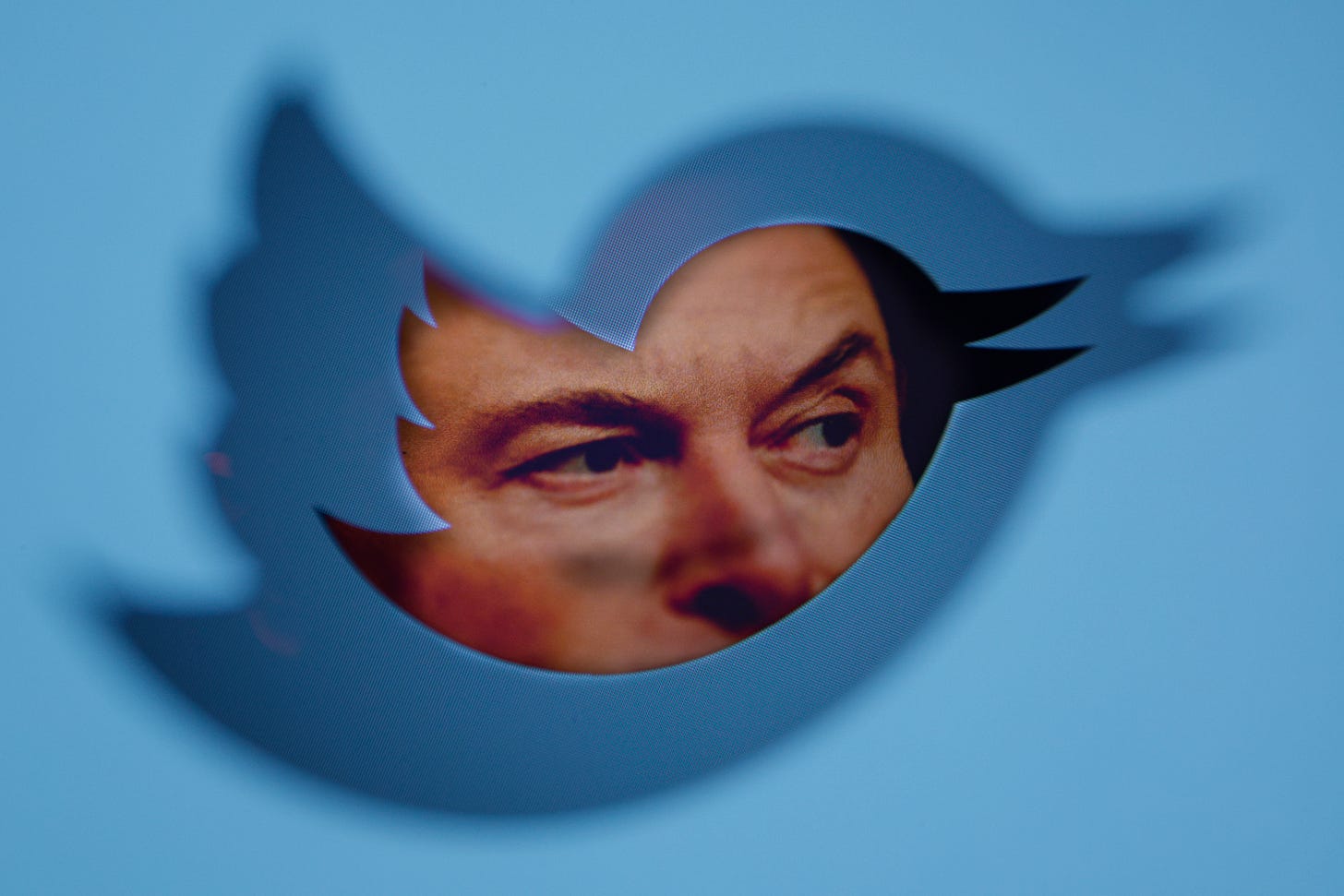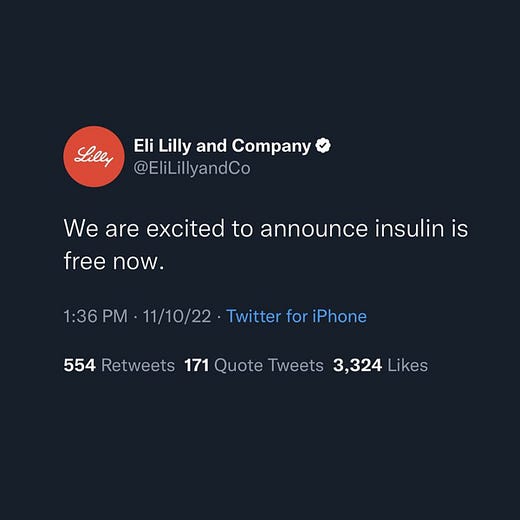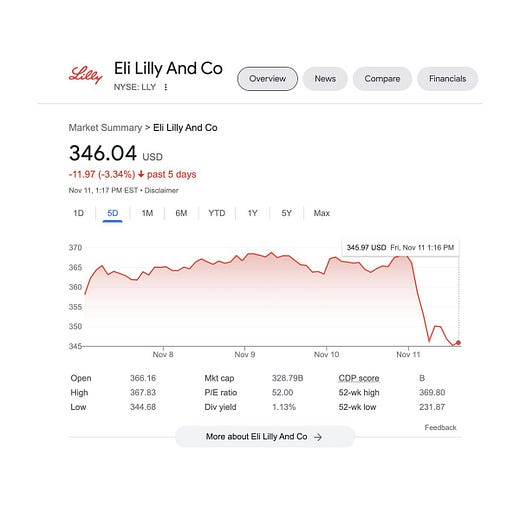Is Elon Musk evil or simply a fool?
Both. The answer is both.
By Noah Berlatsky
Billionaire Tesla CEO Elon Musk officially took private ownership of Twitter on October 27. Soon after he fired around half his employees, including key executives. He also gutted its checkmark verification system by turning it into a paid subscription service; this was intended, he said, to raise much needed revenue to offset the $13 billion in debt with which he saddled the company. Instead, it made it easy for trolls to impersonate everyone from George W. Bush to pharmaceutical company Eli Lilly; after an impersonator tweeted out that the latter was no longer charging for insulin, its stock cratered.
The chaos has caused advertisers to flee Twitter in droves, which is a catastrophic threat to a company where advertising revenue is the core income stream. In addition, Musk’s frenetic thrashing has probably violated the company’s FTC consent decree. Privacy execs in charge of monitoring and implementing that decree fled the company last week, the FTC itself issued a sharp warning, and Twitter stands to be fined millions, if not billions.
Musk has been self-boosting frantically on Twitter itself. (“Twitter HQ is great” he said in one tweet.) But in communications to his remaining employees (instantly made public) he’s warned that the company could be facing bankruptcy.
Musk’s brief tenure at Twitter has been so farcically inept that experts have called it a “case study in failed leadership.” Many on social media, though, have argued that Musk hasn’t really failed. His handling of the company has been so incompetent, and his response to critics so openly hostile, that some have argued that Musk bought the company intentionally — or perhaps subconsciously — to destroy it.
So which is it? Is Musk trashing Twitter because he is an incompetent fool? Or is he trashing Twitter because he is an evil, ugly troll?
The answer, as so often with these things, is “both.”
Spite over everything
Musk purchased Twitter in large part because he wanted to be in a position to harm many of its core users — journalists, liberals, Democrats, trans people, and other marginalized communities. Twitter is a flawed but nonetheless invaluable place where these groups have come together to talk, to strategize, to fundraise, to organize, and to hold the powerful accountable.
Musk is a billionaire transphobe who’s been convicted of union-busting and has been sued for racially segregating his factory floor. He’s also pathologically online. (He met his ex-partner, the musician Grimes, on Twitter.) Now that he owns Twitter, it’s also his chance to own the libs who have criticized and dared to mock him. He’s in a position to break their communities and drive them from online spaces where they’ve built networks and formed friendships.
Public Notice is a reader-supported publication. The best way to make this work sustainable is with a paid subscription.
Musk doesn’t want to destroy Twitter in the sense of rendering it a smoking ruin with a URL that leads to the abyss. But he does want to destroy Twitter to spite his enemies. Loosely defined, that means he wants to destroy it for everyone who questions the righteousness of a world ruled by white male billionaire tech bros.
There are numerous examples of how Musk’s Twitter fiasco is linked to his right, and far right, ideological commitments. Musk made his first moves towards acquiring control over Twitter in April, motivated in part by Twitter’s content moderation. In particular, he was angered by its decision to ban former President Donald Trump after he used the platform in organizing his violent coup attempt.
When Musk did gain ownership of the company, one of the first things he did was to boost a baseless homophobic conspiracy theory about the husband of the Democratic Speaker of the House, Nancy Pelosi.
Just this weekend he mocked Democratic Senator Ed Markey for expressing concerns about impersonation on Twitter.
Musk has also been obsessed with revamping Twitter’s verification system — explicitly in the name of punishing and disciplining those with verified checkmarks.
Right-wing Twitter trolls have long used “blue checkmarks” as an insult to suggest that journalists, and especially left-wing journalists, are part of an out-of-touch, elite hive mind which wields unearned and unchecked (as it were) power. This confused analysis culminated in a evidence-free conspiracy theory that people were buying blue check marks for $20,000. (See this irate user making that claim, for example.)
Musk has bought into this framing. One of his first acts as owner was to promise to do away with the checkmark verification system in order to bring “power to the people”— that is, to the right-wing trolls who Musk sees as his friends and as the populist volk. Musk said that his Twitter Blue service would sell the verification badge for $8/month, and that he would remove “corrupt” legacy blue checks.
Musk’s treatment of Twitter employees is also ideologically motivated. Again, the right has long been enraged at Twitter for its (halting, inadequate, but still) efforts to moderate hate speech on the site. Even Twitter’s former billionaire CEO Jack Dorsey — who, like most billionaires, isn’t a fan of the left — accused his own workers of being too liberal.
Dorsey, though, was circumspect about trying to appear neutral even as Twitter’s algorithm was designed to boost right-wing politicians and content. Musk is more ignorant, more rabid, and significantly higher on his own supply. He’s always treated his employees at his other companies with contempt and suspicion; Tesla, for example, fired employees for staying home to avoid Covid even after assuring them it would not.
Musk’s animosity towards Twitter workers is even more egregious; before acquiring the company he said — like many a far right Twitter troll — that Twitter employees were lazy leftists who needed to be culled. The massive layoffs, then, weren’t just a cost-cutting measure; they were a punishment. So is Musk’s arbitrary, unmanageable, sweeping revocation of Twitter’s work-from-anywhere policy, forcing employees to spend 40 hours onsite a week, even though many of them live nowhere near an office.
Monetizing right-wing grievances
Musk wants to hurt journalists and politicians by destroying verification. He wants to hurt marginalized people by letting hate speech flourish. He wants to immiserate Twitter employees. He wants to destroy the Twitter they represent because he’s an impossibly wealthy right-wing asshole motivated by hate and resentment. In that sense, he does want to destroy (a certain kind of) Twitter because he’s evil.
Being evil, though, also makes Musk foolish, ignorant, and as perspicacious as a bag of hammers. He’s convinced that he, an over-sensitive whiny billionaire, really does speak for the “people.” He thinks everyone loves fascist Twitter trolls and wants to be like them. He thinks that destroying Twitter for its most frequent users and its employees will create a wonderland of $8 revenue streams and low payroll. He thinks he can troll his way to profitability.
But as anyone not huffing far right meme effluvium is aware, this is nonsense. Advertisers don’t want to pay to have their content sitting beside Holocaust denial and racist accounts screaming the n-word over and over.
Gutting verification doesn’t democratize the site. It just makes it impossible to know whether information on Twitter is reliable, degrading the experience for users. And once everyone realizes that the verification badge now means nothing, it’s worth is going to be precisely 8 dollars less than $8.
Musk is already scrambling around like a wounded rat, dribbling brain matter and resentment as he humorlessly suspends accounts mocking him and tries to figure out how a genius like himself could possibly be bleeding tens of billions.
If Musk were just intent on destroying the site, he wouldn’t keep backtracking by pausing the Twitter Blue program or trying to hire back employees he laid off; he’d let it all burn. If he were just a fool who didn’t know what he was doing but wanted the site to make money first and foremost, he’d stop tweeting.
But Musk wants to make money by harming his enemies. He wants to monetize his grievance, his bigotry, and his cruelty. He’s evil and a butthead, both.
As such, Musk is a perfect symbol of the current right wing. Like the post-policy GOP, and like Trump, Musk is so ensnared in conspiracy theories and in hatred that he can’t see real problems in front of his nose and makes up imaginary problems that aren’t there. Twitter’s ongoing rolling disaster is a good example of what happens when you give wealthy, hateful reactionaries absolute power over institutions and communities. By mixing self-imposed ignorance with deliberate malevolence, they destroy them.









